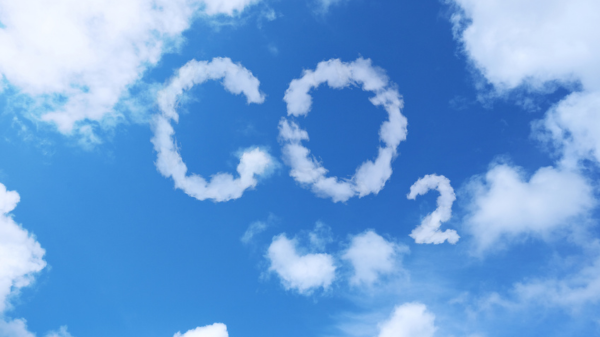By Brett Davis
(The Center Square) – A choice available to voters on the November ballot could already be saving them money at the pump.
This November, voters in Washington state will have the final say on Initiative 2117, which would repeal the Climate Commitment Act and prohibit state agencies from implementing a cap-and-trade program.
However, there is some evidence that I-2117 may already be impacting the price of carbon credits, given a major decrease in the price of carbon credits during this year’s first two auctions as compared to last year’s auctions.
Under the Climate Commitment Act of 2021 – which went into effect at the beginning of 2023 – emitters are required to obtain “emissions allowances” equal to their covered greenhouse gas emissions at quarterly auctions hosted by the state Department of Ecology. One carbon credit permits the emission of one ton of carbon dioxide or the equivalent of other greenhouse gases. Carbon credits are also known as carbon offsets.
In 2023, settlement prices for a carbon credit ranged from a low of $48.50 to a high of $63.03.
Some critics claimed the carbon auctions increased the cost of a gallon of gas by up to 50 cents last year.
In 2024, the first-quarter auction price was $25.76 per carbon credit allowance, which raised approximately $135 million in state proceeds. The second-quarter auction price was $29.92 per allowance, raising roughly $157 million in state proceeds.
The Center Square reached out to the state Department of Ecology for comment on this year’s price drop and I-2117.
“We do not have insight into participants’ bidding strategies, and we do not speculate,” said Caroline Halter, communications manager with the Department of Ecology’s Climate Reduction Program, in an email. “What we are seeing is that businesses continue to actively work to meet their compliance obligations under the Climate Commitment Act.”
She hinted that bidders are becoming more savvy and that this is part of the market stabilization process.
“Generally, allowance prices fluctuate as a result of market participation and demand,” Halter explained. “And in any market, prices respond to uncertainty. Price fluctuations are also especially common in new markets.”
The Department of Ecology is looking forward, she noted.
“Our focus is and will continue to be ensuring that each auction is conducted fairly and securely according to Washington’s regulations,” Halter said. “We’re also continuing to pursue a linkage agreement with the California-Québec market to improve price stability and help ensure the long-term success of the program.”
An October 2023 report by the Department of Ecology found that a larger, linked market would likely result in more predictability in allowance prices and incentivize businesses to increase investments to curb their greenhouse gas emissions.
Josiah Neeley, who advises the energy team at the R Street Institute think tank, said he thought “the lower prices are due to the upcoming referendum that would repeal the CCA.”
He said bidders are less inclined to spend money on a program that could be gone by the end of the year.
“Because the allowances for this year’s emissions are not due until next fall, a lot of companies did not bid [at] the last two auctions on the theory that if the referendum passes, any money spent on allowances would be a waste,” Neeley emailed The Center Square.
Some purchases, he said, could have been motivated by the possibility voters would reject I-2117.
“Some entities have bought allowances at or near the minimum price either as a hedge or as a bet that if the referendum fails the price of the allowances on the secondary market will skyrocket,” Neeley said.
The next carbon auction is scheduled for Sept. 4.
The general election is Nov. 5.
Brett Davis is the Pacific Northwest Regional Editor for The Center Square. Prior to assuming his current position, he was The Center Square’s Washington state government reporter. His journalism background also includes working for various community newspapers, as well as public policy organizations the Freedom Foundation and Washington Farm Bureau. He has also done work for World Vision and Russell Investments.
Originally published by The Center Square. Republished with permission.
To read more about cap-and-trade programs, click here.


























